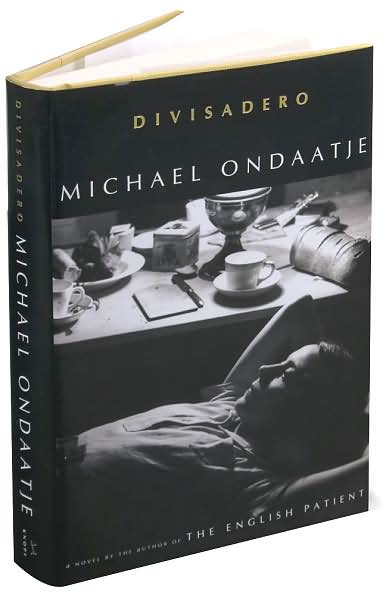 Novel a collection of stories
Novel a collection of stories Sunday, June 24, 2007
DIVISADERO, by Michael Ondaatje; Alfred A. Knopf, 273 pages, $19.95.
By EVELYN SHIH
STAFF WRITER
If you open Michael Ondaatje's new book expecting one story, you will be disappointed. In fact, the central story line ends at Page 165 with more than 100 pages to go -- leaving you to wonder what happens to the protagonists.
Perhaps Ondaatje, who wrote "The English Patient" and "Anil's Ghost," described the book best. In an early scene, the "woman formerly known as Anna" tells in first person the way she and her adopted sister Claire thought about Cooper, another adoptee that their father treated as a farm hand.
"Who was Coop, really? We never knew what his parents were like. We were never sure what he felt about our family, which had harboured him and handed him another life. ... Everything was collage."
Everything in "Divisadero" certainly feels like collage. The book reads more like a collection of short stories that hover around a knot of characters, painting lives in daubs. Chapters jump between viewpoints, skip years, and sometimes vault several thousand miles.
We're with Coop and Anna as their forbidden sexual relationship develops, and we're there when her father discovers them and rages violently, destroying their assembled four-member family forever. (In retrospect, Anna calls it "something very small, something that might occur within just a square inch or two of a Brueghel. But it set fire to the rest of my life.")
We're in Coop's fast-paced heist story as he becomes a card sharp who can "deal a pack of cards to the Supreme Court and get away with it," and we come back to him later to follow another ruse, where the joke's on him.
We're with Claire as she works meekly in a law office during the week and rides horses on the weekend. We're with Anna in France, years later, as she researches an obscure, dead French poet from his last known residence.
 It is the life of this poet, Lucien Segura, in which we are immersed after the sudden end of the first narrative. The only tenuous ties are Anna's obsession with him and the minor presence of the boy Rafael, who would grow to be Anna's middle-aged lover. Can we help but mourn the early loss of our good friends, whom we now know so intimately?
It is the life of this poet, Lucien Segura, in which we are immersed after the sudden end of the first narrative. The only tenuous ties are Anna's obsession with him and the minor presence of the boy Rafael, who would grow to be Anna's middle-aged lover. Can we help but mourn the early loss of our good friends, whom we now know so intimately?But as the second act continues, spinning out the tale of Lucien with a full cast of characters and perspectives, we realize that it is no loss after all. The power of Ondaatje's (pictured left, courtesy of www2.davidson.edu) book is not to deliver the thrill of a plot line, with exposition, development and full denouement. He does deliver that on the small scale, building to climactic moments in individual segments like a masterful short story writer; but the real payoff is in the totality.
Fall in love, the book seems to say. Fall in love with the little details that make up the characters' lives, no matter if they span half the world and skip a century; and in turn, fall in love with the human life in general. In another beautiful passage, in which Rafael puts together details about his new lover even as she scrounges for scraps about the poet, he wonders:
"Who is she? This woman who has led him into this medicine cabinet of a room where most of her possessions exist. ... As if this orderly collection of things is what she is. So we fall in love with ghosts."
E-mail: shih@northjersey.com
Copyright © 2007 North Jersey Media Group Inc.
No comments:
Post a Comment